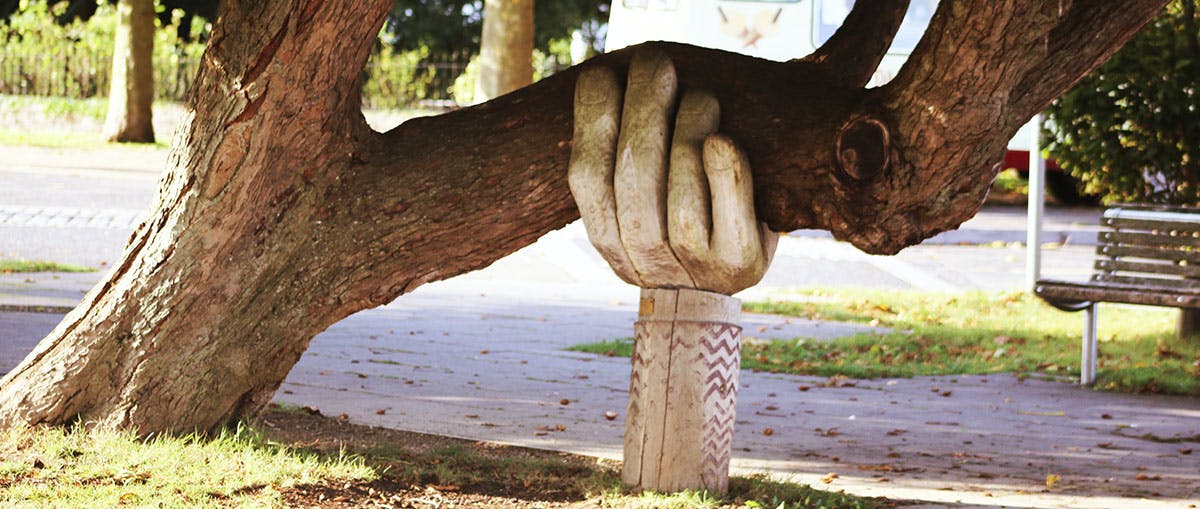What is a gifted deposit and how to use it to buy a house
Saving for a deposit is getting tougher. First-time buyers had to raise an average deposit of £61,000 to get on the property ladder. And with property prices rising, it’s no wonder then that more than a third of first-time buyers cited the struggle to save a house deposit as the single biggest obstacle standing between them and home ownership.
To overcome this hurdle, the majority of first-time buyers rely on family support to get on the property ladder. For those lucky enough to have family who can help, a gifted deposit could be the answer.
What is a gifted deposit?
A gifted deposit is financial gift, often from a family member, that provides funds which are used as some, or all of a house deposit.
By getting a gifted deposit from someone, you’ll be lowering the amount you need to borrow from the bank, which can help you access lower mortgage rates. That means your monthly repayments will be lower as your mortgage loan will be smaller, and you will pay a smaller rate of interest.
If you don’t have any deposit, getting support from your loved ones can help you get on the ladder years earlier than if you wait to save up the cash yourself.
How does a gifted deposit work
Gifted deposits can be made from the donor’s savings or, if they have enough equity built up in their own home, they can remortgage their own property to release the money. The gifted deposit can make up a percentage of your overall down payment on the house, or it can be used as your entire deposit (depending on the lender). You just have to make sure you declare that part of or all of your deposit is gifted, as well as informing your mortgage lender as they will need to be able to trace the source of the money.
If you’ve had credit difficulties in the past, you may have to use a specialist mortgage lender who works with adverse credit. Their rules could insist that you contribute at least 5% of the deposit from your own funds. That’s because they will see you as more likely to care about keeping up with the repayments if you’ve invested some of your own cash in the property as well.
Crucially, as the money is gifted there is no expectation that the cash will be paid back, nor do the donors have any claim on the property being purchased.
If your family want to help you buy but get something back in return for their support, a better way of doing this is for them to co-invest with you through a Deposit Loan, or Dynamic Income Boost.
What counts as a gifted deposit?
A gifted deposit is usually cash from someone else, that you use as part of or all of your down payment on a property. There’s lots of ways that a loved one can give you a gifted deposit.
One option is to use a Deposit Boost to unlock equity from their home through a small mortgage; the proceeds of which are then gifted you to bolster your house deposit. Or if you have loved ones who are retired, they can use specialist home loan called a Retirement Interest Only mortgage to unlock their property wealth to gift you money. The sale of investments could also be the source of the gifted deposit, or traditional cash savings.
There are also other ways a parent or loved one can help you get on the ladder without gifting you cash.
Find out all the ways your family could help you buy
By creating a free Tembo plan, you and your loved ones can see what guarantor mortgages and family support schemes you're eligible for and how much they could help boost your buying budget.
Do you have to declare a gifted deposit?
Yes, when you instruct a solicitor after you've put an offer on a property, you must declare that part or all of your deposit is gifted. You must also tell your lender. This is because both parties will need to run anti-money laundering checks on the person gifting the deposit.
Part of the anti-money laundering check is to ask for the gifted deposit proof of funds. Lenders and solicitors need to be able to trace the source of the money, for example from a savings account statement where they can see the cash building up.
What is a gifted deposit letter?
A gifted deposit letter is a letter that comes from the person making the financial gift and contains a list of standard details and declarations. Your mortgage broker can download a template from your lender’s website for your donor to use, but as a bare minimum the gifted deposit letter must contain:
- The name of the person gifting
- The name of the recipient of the gift
- The relationship between you both
- The value of the gift
- A statement confirming there is no expectation of repayment
- Confirmation that there is no requirement for the donor to receive any stake in the property
- Confirmation that the person gifting the deposit is financially solvent. This is to make sure the money will be available when it’s time to complete the transaction.
The person gifting the deposit and a witness must sign and date the letter. Your solicitor can check it through before it’s submitted to your lender along with your application.
The purpose of the letter is to prevent the person who is making the gift from changing their mind in the future and insisting it was a loan. This could put the borrower under financial pressure if they have to pay it back.
Who can gift a deposit for a mortgage?
The most common source of gifted deposits is from parents and grandparents, but other family members and parties can gift a deposit. Mortgage lenders prefer the gift to come from parents or grandparents because it is more likely to be a legitimate, no-strings-attached gift and therefore pose a low money laundering risk. Aunts, uncles, cousins and friends are less widely accepted by mortgage lenders, but some will consider them.
You can also sometimes get a gifted deposit from your homebuilder if they offer a Builder's Gift. This is offered on new-builds as an incentive for buyers. It works by the homebuilder contributing a fraction towards your deposit. To be acceptable to the lender, the full asking price, before the builder’s contribution, must represent the true value of the property.
Another potential source of a gifted deposit is a Vendor deposit. This comes in the form of a discount off the property's purchase price. It isn’t a common situation and one that is scrutinised by lenders, even if the seller is a family member who has agreed to sell you the property at a discount.
What are the tax implications?
A mortgage deposit gift from parents or anyone else can be gifted tax-free. Everyone is allowed to gift up to £3,000 a year tax free, so your parents get a £3,000 annual allowance each. They can also carry forward any unused allowance from the previous year, so if they combined two years’ allowance they could gift £12,000 tax-free.
Gifting more than that would be tax-free at the time of the donation, known as a Potentially Exempt Transfer, but it could become subject to inheritance tax in the future.
For it to remain tax-free, the person gifting must live for seven years after making the donation. If they don’t, it could be taxed if the value of their estate, including any non-exempt gifts, is worth more than £325,000. Inheritance tax is charged at a rate of 40% on the value of the estate above £325,000.
Read more about inheritance tax and how to reduce your family's liability for it in this guide here.
See what family mortgages you're eligible for
With so many different mortgages and guarantor schemes out there, it can be tricky and time-consuming to work out what is right for you and your family. When you create a free plan on our homebuyer platform, you can see all the family mortgage schemes you're eligible for, including gifted deposit options.
Frequently asked questions
Can parents or family gift money for a house deposit?
Yes, parents or family can gift you money for a house deposit. Parents are the most common sources of financial help for getting on the ladder, but other relatives can also support your home purchase.
Can a friend gift a deposit for a mortgage?
Yes, friends can gift you a deposit for a mortgage. Although the most common donors of gifted deposits are parents, some mortgage lenders will allow gifts from other parties including friends or siblings. However, make sure you are clear with your friend whether their funds are a gift that isn't supposed to be returned, or whether they want the money returned. If they want their funds back later on, an equity loan or interest-free loan might be a better option; this allows them to own a share of your property, or get their money back when you sell the property.
You might also like: Can brothers, sisters or friends buy a house together?



